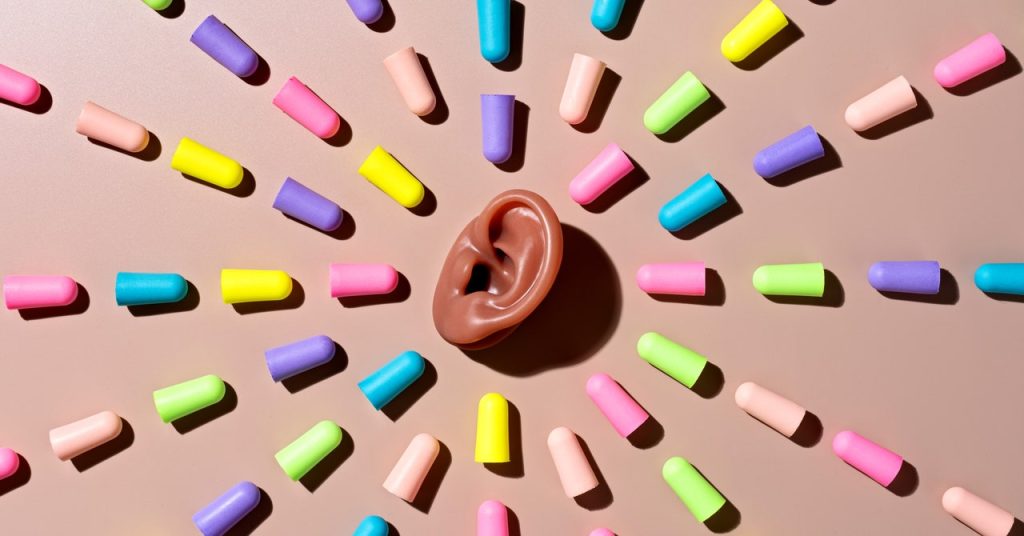Navigating the Noise: A Mom’s Quest for Peace Amidst the Chaos
As a mother of three energetic boys, the constant chatter of Minecraft strategies, Pokémon card trades, and Weird Al parodies can be overwhelming, especially for those who are sensitive to noise. It’s a common struggle, with a 2023 survey revealing that 35% of adults find everyday sounds unbearable. Sensory sensitivities, chronic conditions, and mental health issues can also amplify the impact of loud noises.
The Impact of Noise Pollution
Even without a diagnosable condition, repeated exposure to loud sounds can take a toll on your well-being. After ruling out early signs of hearing disorders through a comprehensive evaluation, there are various tools available to make your immediate environment more tolerable or block out the noise altogether.
Protective Gear: Earplugs and Earmuffs
Since the 1970s, the National Institute for Occupational Safety and Health (NIOSH) has recommended using earplugs to reduce environmental noise by preventing sound waves from reaching the inner ear. Earmuffs operate similarly and are often more comfortable and user-friendly. Dr. Deanna Meinke, an expert in the field, uses various protective devices depending on the environment, such as regular earmuffs or foam earplugs for lawn mowing, high-fidelity filtered earplugs for noisy live music events or restaurants, and electronic shooter’s earplugs or earmuffs for firearm impulse noise research.
“Typical foam earplugs attenuate high frequencies like the upper keys on a piano. But there are specially designed earplugs called high-fidelity or ‘musicians’ earplugs’ that attenuate (weaken) sound equally across all frequencies,” says Meinke.
Noise-Canceling Headphones: A High-Tech Solution
Bluetooth-enabled noise-canceling headphones emit sound waves that complement and cancel surrounding noise, allowing you to immerse yourself in podcasts or music while blocking out distractions. These tools not only minimize the physical effects of noise pollution but also provide a sense of control over your auditory environment. However, it’s essential to research and choose a legitimate device for optimal results.
“Just make sure to do your homework before you purchase. Some of these devices are legit, and they can be a boon for people who are sound sensitive, but others are essentially useless,” Brout says.
Creating a Serene Space: Environmental Controls
Modifying your living space with sound-absorbing materials like soft window coverings, fabric wall art, absorbent flooring, and acoustic ceiling tiles can help mute unwanted sounds. Investing in these preventive measures upfront is more cost-effective than paying for hearing aids and rehabilitation later on.
In addition to an air purifier and white noise machine, engaging family members in reducing the overall noise level can be beneficial. Web-based tools like Bouncy Balls, Too Noisy Lite, and Calm Counter can help bring awareness to rising noise levels and encourage quieter interactions.
Finding Balance: Tech Tools and Self-Care
While there’s no perfect solution to eliminating the noise generated by a lively household, a combination of technology and self-care can make the sounds more manageable. Prioritizing sleep, taking breaks, and occasionally removing yourself from the chaos can help you cope with the stressful sounds produced by your beloved family members.

3 Comments
Suddenly realizing every chew, click, and beep steals your peace could be your wake-up call!
If the hum of an air conditioner feels like a chainsaw to your nerves, welcome to the noise-sensitive club!
Finding out loud chewing makes you want to leave the room might just mean your ears are too sharp for comfort!